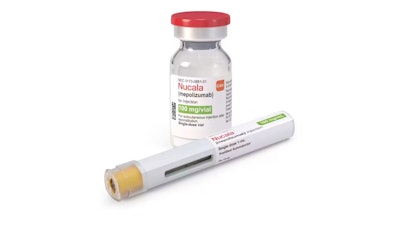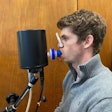
There is a new weapon in the fight against COPD as the U.S. Food and Drug Administration (FDA) has approved Nucala (mepolizumab) for use in adults with COPD, making the U.S. the first country in the world to approve the drug. Regulatory reviews are currently underway in China and Europe.
Nucala manufacturer GSK said in a news release that the drug will be used as an add-on maintenance treatment in adults with inadequately controlled COPD and an eosinophilic phenotype.
The FDA’s approval was based on data from the MATINEE and METREX phase 3 trials, in which mepolizumab showed a clinically meaningful and statistically significant reduction in the annualized rate of moderate to severe exacerbations compared to a placebo. The MATINEE results were released in May 2025.
In a pre-defined secondary endpoint in the MATINEE trial, the annualized rate of COPD exacerbations requiring emergency department visits and/or hospitalization was reduced in the mepolizumab group compared to the placebo.
Mepolizumab is the only approved biologic evaluated in patients with an eosinophilic phenotype and a low blood eosinophil count. Eosinophils are a type of white blood cell that serve as a biomarker for type 2 inflammation and indicate a risk of exacerbation in COPD patients.
Kaivan Khavandi, MD, PhD, senior vice president and global head of respiratory, immunology and inflammation research and development for GSK, said that the approval of the drug provides an important option for COPD patients.
“Long-term, follow-up studies have demonstrated that exacerbations are the single most important predictor of future risk, with particularly poor outcomes in those requiring hospital visits or admissions,” Dr. Khavandi said. “Today, there is hope for improved care for COPD patients with an eosinophilic phenotype.”






















